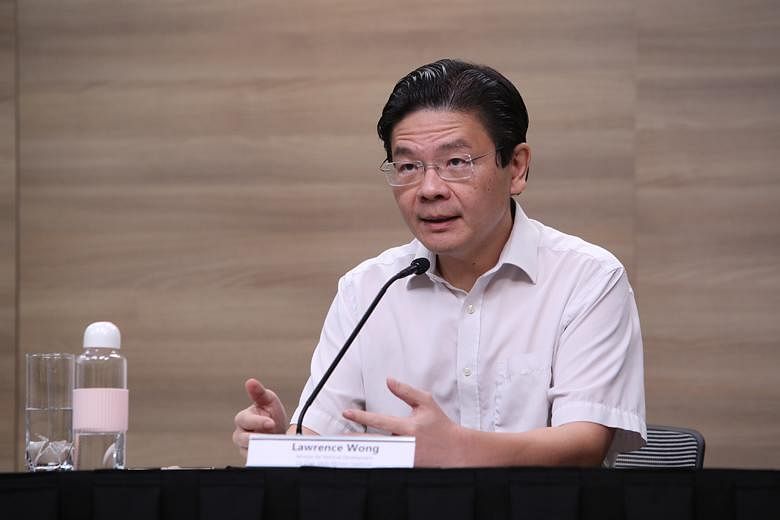As Singapore ramps up coronavirus testing to 40,000 a day, it needs to have a strategy and do it in a coordinated fashion, said Minister for National Development Lawrence Wong yesterday.
"It's not just everyone, raise your hand and then you can apply for a test. It shouldn't be like that," he added in his reply to a reporter at a virtual media conference by the multi-ministry task force for combating the spread of Covid-19.
"The tests have to be allocated to areas of priority," he said, adding that the rate of 40,000 daily tests "is probably ranked as one of the highest rates of testing in the world".
Among the top priorities he cited are nursing homes, front-line medical workers and migrant workers, who he said should be tested on a regular basis partly because they work in large groups.
"You want to be very careful not to have large clusters forming again," he stressed. Migrant workers staying in dormitories form about 85 per cent of total infected cases, which stand at 21,707.
He added: "Testing will be a national resource, which we will apply in a strategic way to ensure that Singapore is safe from the virus."
Mr Wong, who co-chairs the task force, outlined the strategy in his reply to a Bloomberg reporter who asked whether selective testing had not worked out as well as Singapore had planned, and whether the move to mass testing is manageable given the global shortage of test kits.
Health Minister Gan Kim Yong, in underlining the point, said: "We cannot be testing aimlessly. The key is that... we do so with quite clear purposes in mind."
He reiterated the three purposes of testing that he had set out in Parliament on Monday: first, to find those who are positive; second, to conduct surveillance to understand the overall transmission landscape; and third, to look for those who are negative and allow them to go back to work.
In his reply, Mr Wong also said Singapore has been raising its testing capacity quite significantly.
Daily testing has been ramped up from about 2,900 a day in the initial days to 8,000. In a few weeks, Singapore will have the capability to perform 20,000 daily tests and, eventually, 40,000.
"Even with 40,000 a day for a population the size of Singapore, it's not going to be effective if it is done in an uncoordinated way," he said.
Another group he cited to be allocated test kits are essential workers returning to their workplaces.
Their numbers are set to rise in the coming weeks as circuit breaker measures are gradually loosened and the country prepares for the scheduled end of the circuit breaker period on June 1.
The Health Ministry's director of medical services Kenneth Mak said various strategies will be adopted to meet the needs of different settings. Other types of tests, like serological testing, will be used as well to determine whether people have recovered from the infection and can return safely into the community and the workforce, he added.
Said Mr Gan: "When we test individuals, we need to know what is the purpose of the test, so that we can design our strategy appropriately and the outcome will then be useful for us."












